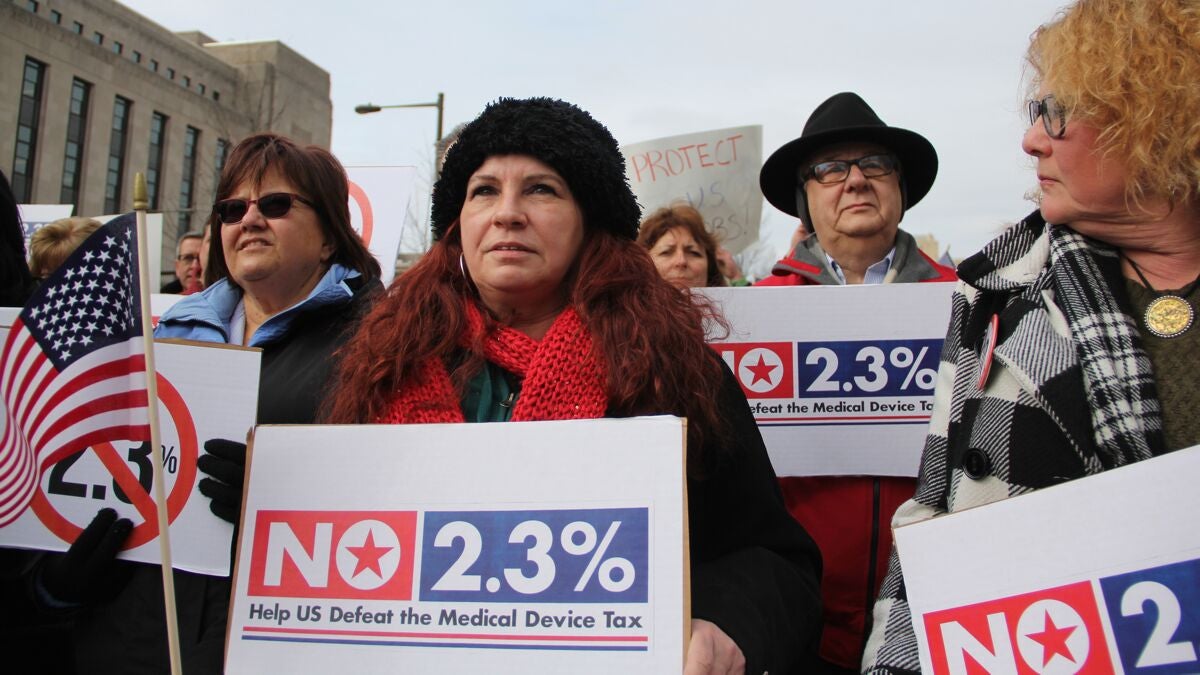Medical device makers win two-year tax reprieve

A group of protesters gathers outside 30th Street Station to rally against the medical device tax. Many were employees of B. Braun Medical, Inc. in Allentown, Pa. (Emma Lee/WHYY)
Last winter, medical device companies across the Delaware Valley rallied against a federal tax they say is hurting the industry. As part of much larger budget deal just inked in Congress, those businesses can look forward to a two-year tax holiday.
Medical device companies make products such as catheters, pacemakers and artificial knee joints. In 2013, they started paying a tax mandated to help get more people enrolled in health insurance through the Affordable Care Act. Now, medical-device makers are getting a two-year break from that federal tax.
“It was a long, long trek — I won’t call it a fight — it was a long educational trek to make sure people understood what was happening to the industry,” said Paul Touhey, who opposed the tax. He is a board member for three medical-device companies.
Industry insiders say the levy on revenues — instead of profits — was especially bad for startup companies. And many established firms said they had to rethink expansion plans in order meet the new tax obligation.
Architects of the tax-law expected that providing more people with health insurance across the country would drive up the need for medical devices — and that would be a boon for device manufacturers.
“It just didn’t happen,” Touhey said. “None of the companies that I was involved with saw any increase in the usage of the products as a result of newly insured people because of the Affordable Care Act.”
Opponents called the tax a “job killer” but several independent analysts didn’t find much evidence that the tax was harming the industry.
Paul Touhey said lawmakers in Pennsylvania listened their constituents.
“Pennsylvania’s got 44,000 people working in the medical device and peripheral businesses,” Touhey said.
The medical device industry has spent years and tens of millions of dollars trying to get a repeal of the 2.3 percent tax. A spokeswoman for the trade group Advanced Medical Technology Association said the industry will continue to push for a full repeal.
But some argue that repealing the medical-device tax will create “me too” lobbying from other sectors that have been asked to pony up to help expand health coverage in the United States.
The tax is frozen for 2016 and 2017. There’s no word yet how Congress will replace the money that was supposed to help support the Affordable Care Act.
WHYY is your source for fact-based, in-depth journalism and information. As a nonprofit organization, we rely on financial support from readers like you. Please give today.

